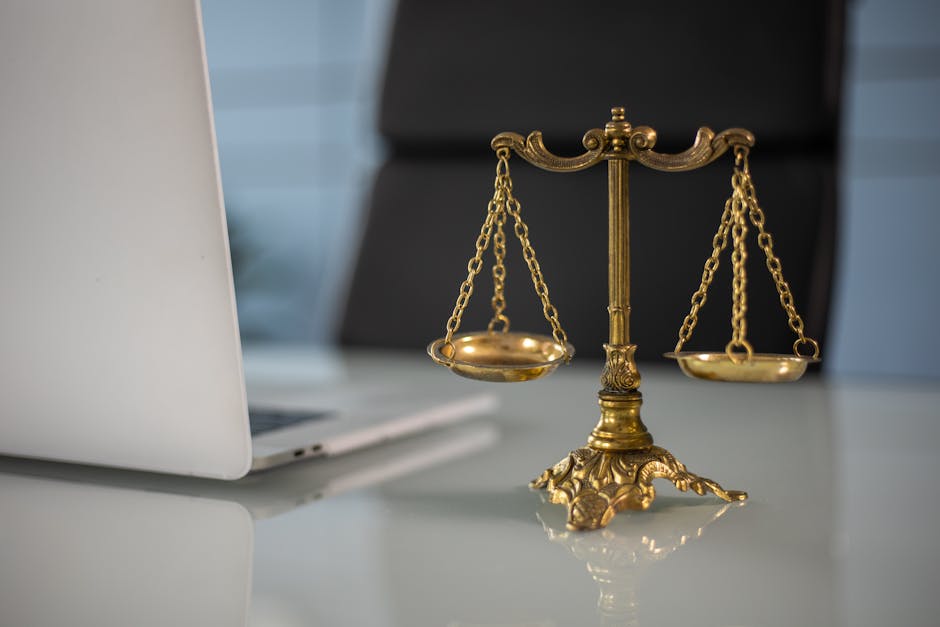Exploring the Depths of Modern Media Ethics
In today’s digital age, the media plays a crucial role in shaping public opinion, influencing political discourse, and disseminating information on a global scale. With the rise of social media, online news platforms, and digital content creators, the landscape of media ethics has become increasingly complex and multifaceted. The principles and standards that govern the practice of journalism and communication continue to evolve, raising important questions about truth, transparency, and accountability in the media industry.
The Evolution of Media Ethics

Media ethics have been a cornerstone of journalism and communication since the inception of mass media. The concept of ethical reporting is rooted in the idea that journalists have a responsibility to uphold truth and accuracy in their work, serving the public interest above all else. However, as the media landscape has undergone significant transformations in recent years, traditional ethical norms have been challenged and redefined.
In the past, media ethics primarily focused on issues such as objectivity, fairness, and balance in reporting. Journalists were expected to provide accurate information, present multiple perspectives, and separate fact from opinion. However, with the advent of digital media and the 24-hour news cycle, these principles have come under scrutiny.
The Digital Age and Ethical Dilemmas

The proliferation of online news sources, social media platforms, and user-generated content has blurred the lines between journalism, activism, and entertainment. In the digital age, anyone with an internet connection can become a content creator, sharing news, opinions, and information with a global audience. While this democratization of media has led to greater access to diverse viewpoints, it has also raised concerns about the spread of misinformation, fake news, and propaganda.
One of the key ethical dilemmas facing modern media is the issue of sensationalism and clickbait. With fierce competition for viewership and advertising revenue, many media outlets resort to sensational headlines, provocative content, and misleading information to attract clicks and engagement. This trend has fueled a culture of outrage and polarization, undermining the credibility of the media and eroding public trust.
Transparency and Accountability in Journalism

Amidst these challenges, media organizations are increasingly emphasizing the importance of transparency and accountability in their reporting. Journalists are expected to disclose their sources, verify information independently, and correct errors promptly. The rise of fact-checking organizations and media watchdogs has helped to hold the media accountable for ethical lapses and misinformation.
Another ethical issue that has gained prominence in recent years is the use of anonymous sources in journalism. While confidential sources play a vital role in uncovering corruption, injustice, and abuse of power, they also raise concerns about credibility and verification. Journalists must weigh the public interest in disclosing sensitive information against the ethical obligation to protect their sources.
Ethical Challenges in the Age of Social Media

Social media platforms have revolutionized the way we consume and share information, enabling real-time communication and interaction on a global scale. However, the rapid dissemination of news and opinions on social media has created new ethical challenges for journalists and content creators. The viral nature of social media can amplify misinformation, false rumors, and hate speech, leading to social unrest and political polarization.
Influencers, bloggers, and online personalities have also raised ethical questions about transparency, authenticity, and sponsorship disclosure. As social media influencers partner with brands, promote products, and monetize their online presence, they must navigate the ethical boundaries of advertising, endorsement, and editorial independence. The Federal Trade Commission (FTC) has issued guidelines requiring influencers to disclose paid partnerships and sponsored content to their followers.
The Role of Media Ethics in a Democratic Society
Media ethics are essential for upholding the principles of democracy, freedom of expression, and informed citizenship. A free and independent media serves as a watchdog, holding government officials, corporations, and powerful interests accountable to the public. Ethical journalism provides a platform for diverse voices, marginalized communities, and underrepresented perspectives to be heard.
Journalists have a duty to report the truth, challenge authority, and foster public debate on critical issues. By adhering to ethical standards of accuracy, fairness, and transparency, journalists can build trust with their audience and contribute to a healthy democratic society. Media ethics play a crucial role in safeguarding the integrity of information, promoting civic engagement, and upholding the values of democracy.
Expert Opinions on Modern Media Ethics
Leading experts in media ethics offer valuable insights into the challenges and opportunities facing the media industry today. According to media ethicist Kelly McBride, “Transparency is the new objectivity in journalism. The more transparent we are about our reporting process, biases, and limitations, the more trust we can build with our audience.” McBride emphasizes the importance of ethical decision-making, accountability, and self-reflection in journalism.
Media scholar Jay Rosen argues that the traditional gatekeeping role of journalists has been disrupted by the rise of social media and online platforms. Rosen advocates for a more collaborative and participatory model of journalism, where journalists engage with their audience, listen to diverse viewpoints, and co-create news stories together. This approach requires journalists to be transparent, open-minded, and responsive to feedback.
Common Misconceptions about Media Ethics
There are several common misconceptions about media ethics that can hinder our understanding of ethical issues in the media. One prevalent myth is that journalists are always objective and unbiased in their reporting. In reality, all journalists have inherent biases, perspectives, and values that shape their work. The key is for journalists to be aware of their biases, disclose them to their audience, and strive for fairness and balance in their reporting.
Another misconception is that media ethics only apply to professional journalists working for mainstream news organizations. In truth, ethical standards of truthfulness, accuracy, and integrity apply to all forms of media, including social media, blogs, podcasts, and online forums. Content creators of all kinds have a responsibility to uphold ethical principles in their communication and engagement with their audience.
Conclusion: Navigating the Complex Terrain of Media Ethics
In conclusion, modern media ethics are at the heart of the digital revolution, shaping the way we consume, create, and share information in the 21st century. As technology continues to advance and new forms of media emerge, ethical considerations become more critical than ever. Journalists, content creators, and media consumers must navigate the complex terrain of media ethics with vigilance, integrity, and critical thinking.
By upholding ethical standards of accuracy, transparency, and accountability, we can promote a media ecosystem that fosters trust, credibility, and informed citizenship. Media ethics are not a set of rigid rules or guidelines but a framework for ethical decision-making, critical reflection, and responsible storytelling. In an era of fake news, echo chambers, and information overload, media ethics are more important than ever as a guiding light in the pursuit of truth and public good.
As we continue to grapple with the ethical challenges of the digital age, let us remember the words of legendary journalist Edward R. Murrow: “To be persuasive, we must be believable; to be believable, we must be credible; to be credible, we must be truthful.” In the ever-changing landscape of modern media, let us strive to uphold the principles of truth, integrity, and ethical journalism for the betterment of society as a whole.




